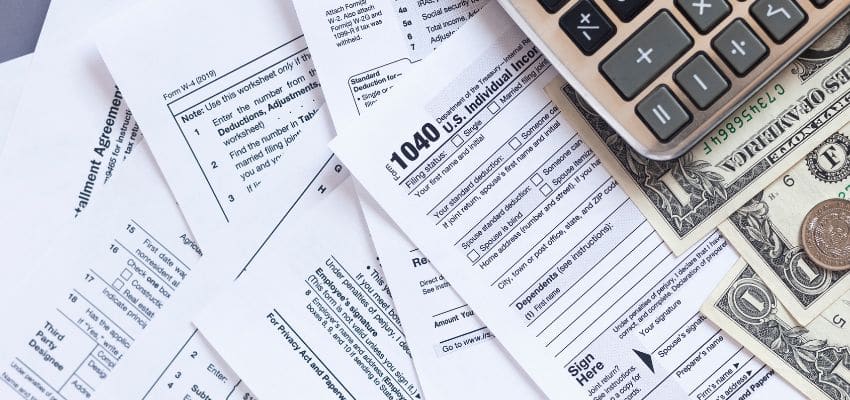Unlocking the Secrets of CE for Tax Preparer

In the ever-changing landscape of the tax preparation industry, CE for tax preparers has become an essential component for professionals seeking to enhance their knowledge and maintain compliance. Continuing education (CE) not only helps tax preparers fulfill regulatory requirements but also equips them with vital skills and insights necessary for navigating complex tax laws and regulations. This article will delve into the key aspects of CE for tax preparers, highlighting its importance, types of available courses, and strategies to maximize learning outcomes.

Understanding the Importance of CE for Tax Preparers
Continuing education plays a critical role in the professional development of tax preparers. Given the complexity of tax regulations, it is essential for practitioners to stay updated on the latest changes, trends, and best practices in taxation. The following sections will explore various facets of the importance of CE for tax preparers.
The Evolving Tax Landscape
The tax landscape is constantly evolving due to legislative changes, new policies, and economic shifts.
Tax laws can change from year to year, making it imperative for tax preparers to keep abreast of these developments. Taking CE courses helps tax preparers understand the implications of these changes for their clients. As tax laws become more complicated, failing to understand these shifts could lead to significant errors in tax preparation, ultimately harming clients and damaging reputations.
Enhancing Professional Credibility
Engaging in continuing education enhances a tax preparer’s credibility among clients and peers.
When tax preparers invest time in professional development, they are signaling to their clients that they are committed to staying informed and providing quality service. This commitment can foster trust and build long-term relationships with clients. Many clients are more likely to seek assistance from professionals who actively pursue education as they see them as reliable advisors capable of handling their financial matters.
Additionally, certain designations, like the Enrolled Agent (EA), require ongoing education to maintain the credential. Completing CE courses can help tax preparers meet these standards, showcasing their dedication to excellence within the profession.
Compliance with Regulatory Requirements
Most states and professional organizations have established minimum CE requirements for tax preparers.
Failing to meet these requirements may result in penalties, loss of licensure, or inability to practice. By participating in CE, tax preparers ensure they remain compliant with both state and federal guidelines. This not only protects their ability to serve clients but also safeguards their professional identity.
Types of CE Courses Available for Tax Preparers
In-Person Workshops and Seminars
In-person workshops and seminars provide a dynamic environment for tax preparers to engage with instructors and peers.
Online Courses and Webinars
Online courses and webinars have become increasingly popular due to their flexibility and accessibility.
Additionally, online platforms often feature recorded sessions, allowing learners to revisit material as needed. This self-paced approach accommodates different learning styles and ensures that preparers can fully grasp complex subjects.
Self-Study Programs
Self-study programs give tax preparers control over their learning environments and timelines.
The key to success in self-study lies in discipline and motivation. To maximize learning outcomes, preparers should create a study schedule and set clear goals. Engaging in discussions with peers or joining study groups can also enhance accountability and enrich the learning experience.
Industry Conferences and Annual Meetings
These events typically feature keynote speakers, panel discussions, and breakout sessions covering a variety of topics relevant to tax preparers. Participants can gain valuable takeaways and practical tips that they can apply in their daily work.
Networking opportunities abound at these conferences, allowing tax preparers to connect with other professionals, share experiences, and build relationships that can last throughout their careers. The collaborative atmosphere of these events fosters community and supports the growth of the profession as a whole.
Strategies to Maximize Learning from CE Courses
Setting Clear Learning Objectives
Before embarking on a CE course, tax preparers should establish clear learning objectives.
By defining what they hope to achieve, preparers can select courses that align with their goals. Whether those goals include mastering a specific tax law, expanding knowledge of a new technology, or improving client communication skills, having a clear sense of direction can guide the selection process.
Moreover, once objectives are established, tax preparers can measure their progress throughout the course. Regularly assessing whether they are meeting their goals allows for adjustments to learning strategies if necessary.
Actively Engaging with Course Material
Active engagement with course material significantly enhances comprehension and retention.
Revisiting course material after completion is also beneficial. Reviewing notes and resources reinforces lessons learned and encourages further exploration of topics that piqued interest during the course.
Applying Knowledge Practically
To truly internalize new information, tax preparers should seek to apply their knowledge practically.
This might involve integrating new strategies into client interactions, experimenting with technology tools introduced in courses, or conducting mock scenarios to practice problem-solving skills. The real-world application solidifies learning and demonstrates the value of continuing education.
Additionally, tax preparers can share insights with colleagues or clients, positioning themselves as knowledgeable professionals while reinforcing their own understanding of the material.
Seeking Feedback and Reflection
Feedback is a valuable tool for growth.
Tax preparers should actively seek input from peers, supervisors, or mentors regarding how they are applying their new knowledge. Constructive feedback can highlight strengths and areas for improvement, guiding future learning efforts.
Reflection is equally important. After completing a CE course, tax preparers should take time to consider what they learned, how it applies to their work, and any changes they would like to implement moving forward. This reflective practice cultivates a mindset of continuous improvement and lifelong learning.
Conclusion
In conclusion, CE for tax preparer is a vital element in the pursuit of excellence within the profession. The rapidly changing tax landscape necessitates a commitment to ongoing education, ensuring that tax preparers remain informed, credible, and compliant. By exploring various types of CE courses and employing effective learning strategies, tax preparers can unlock the full potential of continuing education, ultimately benefiting their clients and enhancing their professional journey. Embracing the challenges and opportunities presented by CE leads to personal growth, improved job performance, and a more rewarding career in tax preparation.


